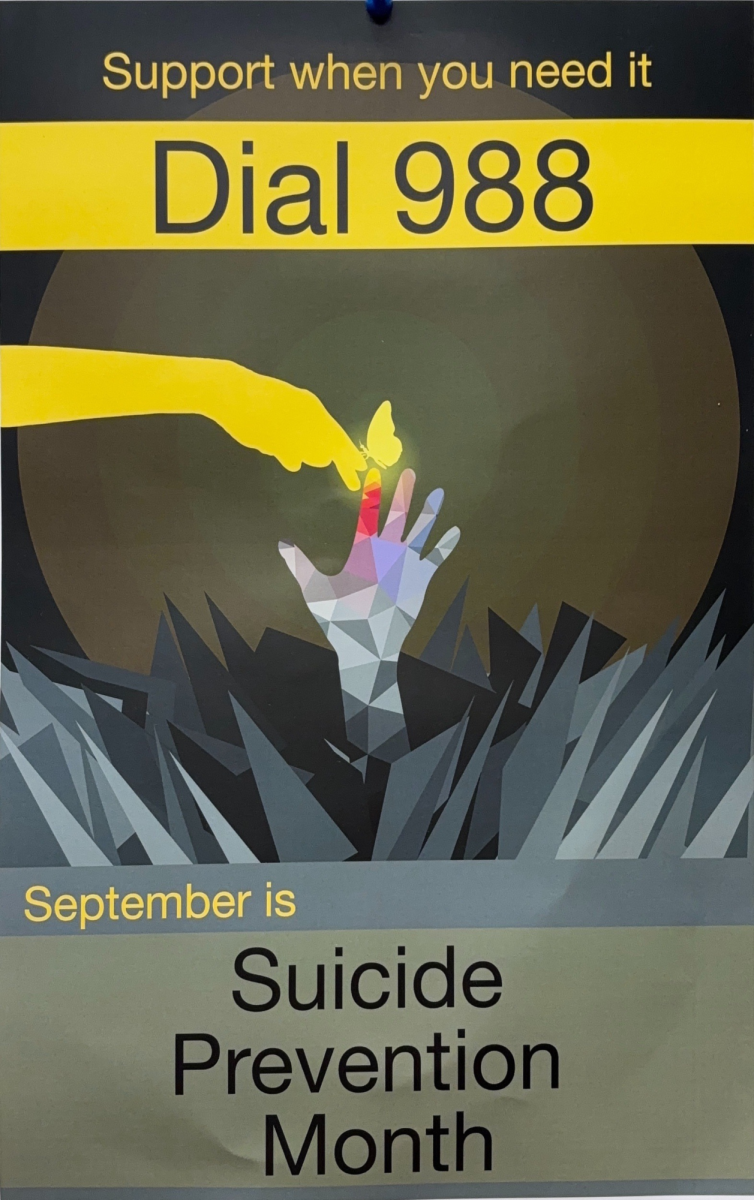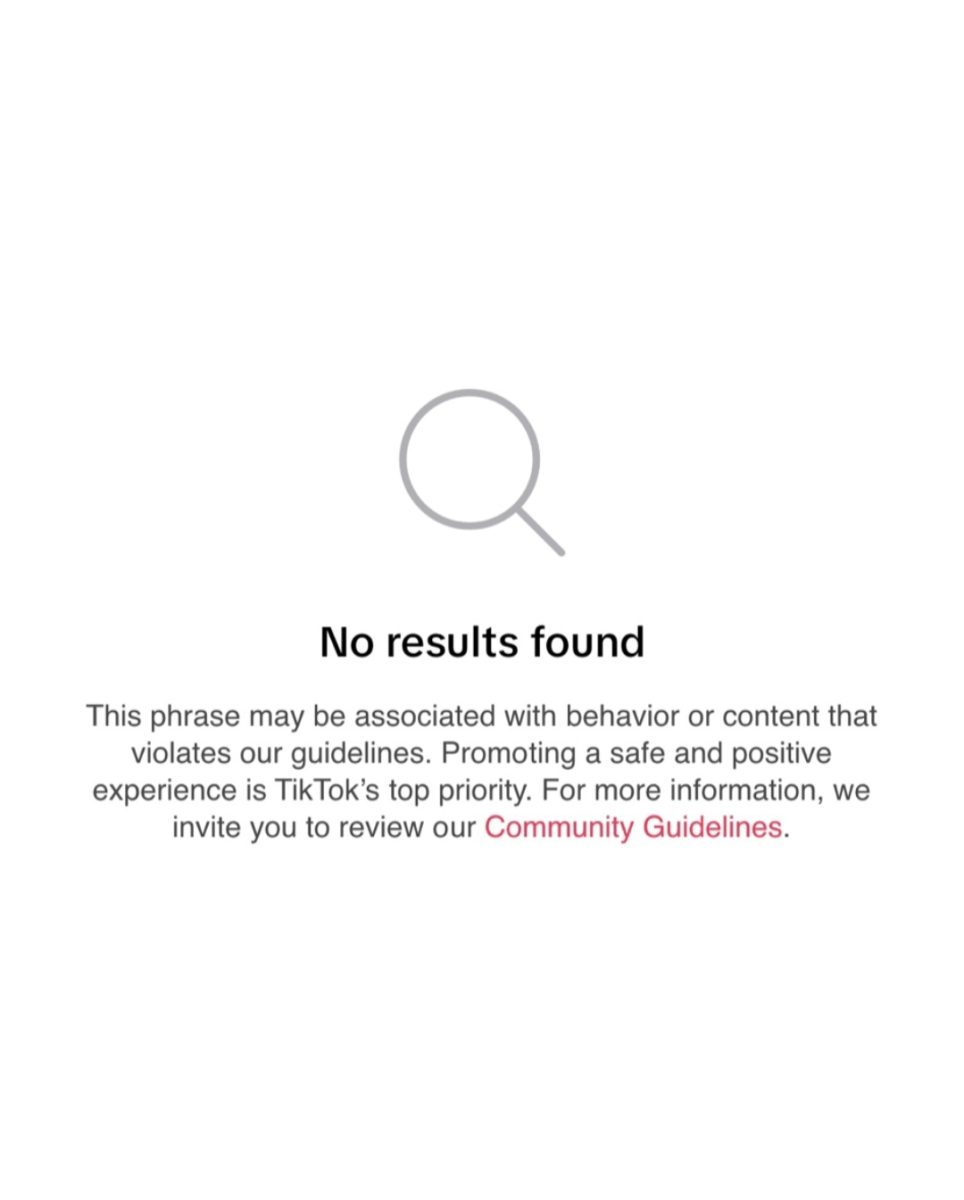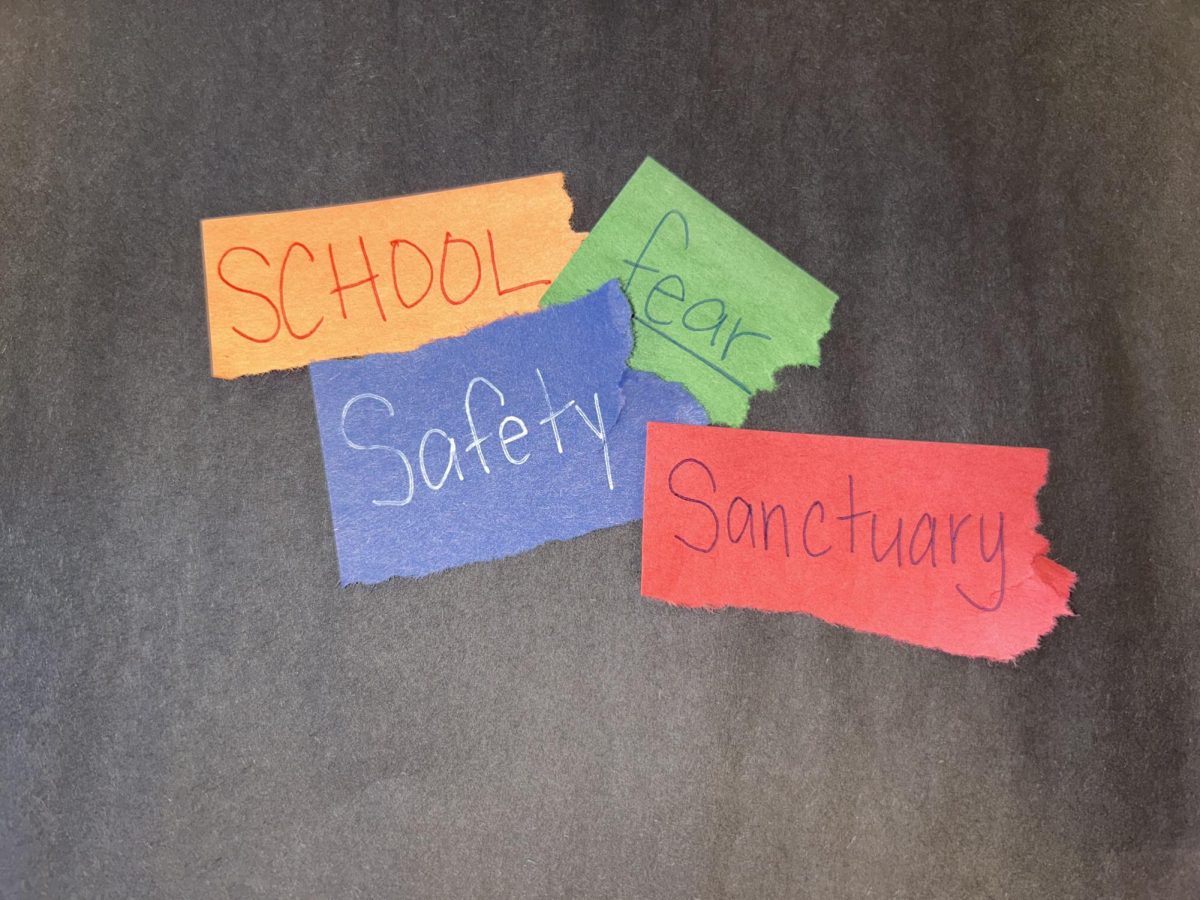Mental health has always been a quiet struggle for many students, something whispered about, hidden behind smiles, or brushed off with a quick “I’m fine.” But the truth is, so many of us aren’t fine. Between grades, relationships, expectations, and simply figuring out who we are, it’s easy to feel overwhelmed. And yet, most students still don’t feel comfortable asking for help.
A survey was put out, and 35 students were asked anonymously if they had ever talked to someone at school about their mental health, and nearly 69% said no. Only 31% said yes.
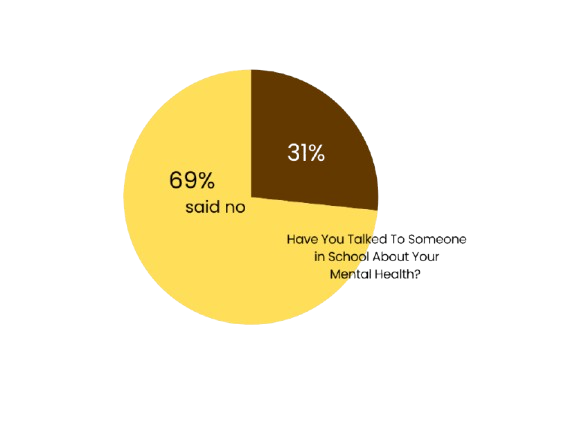
That means most students are silently dealing with stress and anxiety on their own. Even more concerning, 63% said they don’t know about any mental health services available at school. How can students seek help that they don’t even know exists?
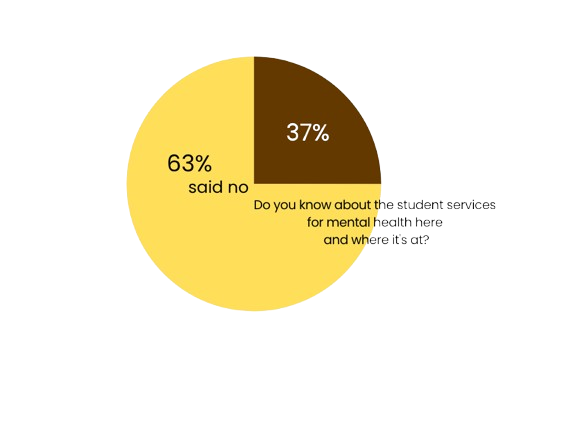
Each September, Suicide Prevention Awareness Month reminds us to reach out and care for one another. But when the month ends and the posters come down, mental health remains a daily battle. Many students say they only see it discussed during September, and that needs to change.
One student said, “If you’re going to make posters telling us to call this number for help, then put them up all year. Or if you see someone who doesn’t look okay, talk to them. Have link leaders talk about mental health and let kids know they can talk to them.”
Students are asking for consistent awareness, not temporary reminders.
Having counselors and hotlines is important, but many students don’t feel comfortable using them.
One student shared. “It’s hard to go to them if it’s not something you see. Having an open space where students can come if they need, without having to ask, would help.”
“Counselors or mental health staff should reach out once in a while to make sure everything is okay,” a student said. Connection builds trust, and trust saves lives.
Because many students don’t feel seen at school, they’re finding support elsewhere.
“There are websites like buddyhelp.org where you can volunteer or talk to a volunteer 100% free!” one student said. “I also downloaded Ambys, an app where you can talk about your thoughts and feelings anonymously. 10/10 recommend it!”
Students are searching for a connection because they’re craving to be heard.
Students aren’t asking for miracles; they’re asking to be heard. Common suggestions include free mental health days that don’t count against attendance, year-round awareness campaigns, training for teachers and link leaders to recognize warning signs, and more open spaces to talk without judgment.
Gretchen Lister, our school counselor and longtime advocate for student wellness, believes that understanding is the foundation of a healthy, kind community. Her message is simple but powerful: be aware, be kind, and be human.
“School resources aren’t expressed or told to students enough,” one student said.
“Be thoughtful, mindful, sensitive, and caring,” Lister said. “We do not always understand what others are going through. Maybe someone is struggling, maybe they are hurting, or maybe they are just having a hard day. Awareness and kindness can make all the difference.”
In her 34 years of working with students, Lister has seen both the pain and the resilience that young people carry. She has sat beside tears, listened to fears, and celebrated quiet victories when a student found hope again.
Her message is simple but powerful: “Be aware, be kind, and be human.”
“We don’t always understand what others are going through,” Lister said. “Maybe someone is struggling, maybe they’re hurting, or maybe they’re just having a hard day. Awareness and kindness can make all the difference.”
Lister also believes compassion begins with how we treat ourselves. “We all have a little person inside us who needs love and care,” Lister explained. “We may grow up to be big people, but that little person never leaves. They still need to hear, ‘You got this. I love you. You are alright.’” Self-kindness often gets lost in school stress, but mental health begins there, with speaking gently to yourself even when life feels messy.
Dustin Dick, our principal, has made it his mission to ensure that every student feels supported and valued. His philosophy is rooted in connection and community.
“This is a safe place for you to be,” Dick said. “We care about you, and we are here to help you be the best you can be.”
He’s also meeting individually with every freshman this year to build those connections early. “Just knowing someone is there for you can make a huge difference.”
He also practices self-care himself.
“It’s not always easy,” Dick admitted. “But I try to take one day over the weekend to step away from work. When we take care of ourselves, we show up better for others.”
Kindness doesn’t have to be grand. It can be a smile in the hallway, sitting with someone at lunch, or sending a quick message that says, “I’m thinking of you.” Each act sends a ripple of care through the community, a reminder that no one has to face life alone.
Now that Suicide Prevention month is over, let’s remember that mental health awareness doesn’t end with a month. Real change happens in everyday choices when we choose patience over judgment, listening over silence, and compassion over criticism.
Lister said it best: “We all need mentoring, care, and reassurance. We all need to hear that we are loved, capable, and enough.”
“I don’t have many friends at school, and I find it easier to connect with people online than actually in person. I feel judged when I’m face-to-face, then behind a screen in my own comfort,” a student said.
We need that same energy within our schools’ real conversations, judgment-free listening, and safe spaces to express how we feel.
If you’re experiencing anything out of the ordinary for you, reach out to someone for help. More people care than you think. Asking for help isn’t weak, it’s strong. And the more we speak up, the more we remind others that they’re not alone.
Taking care of your mind is just as important as taking care of your body. Be kind to others, but do not forget to be kind to yourself, too.
Your mental health matters today, tomorrow, and every day after.
If you or someone you know is struggling, reach out to a trusted adult, counselor, or friend. Family Service & Guidance Center offers crisis services 24/7 at 785-232-5005, and you can always call or text 988 for the National Suicide and Crisis Lifeline. Taking care of your mind is just as important as taking care of your body. Be kind to others and to yourself.



